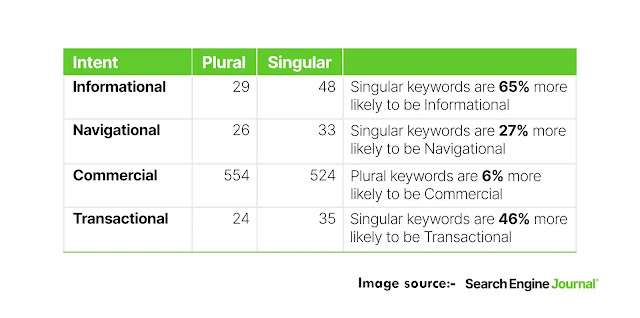When optimizing content for SEO, one important decision SEO professionals face is whether to choose the singular or plural version of a keyword as the primary one. The question is, can you rank for both versions on the same page, or do you need separate pages?
With over a decade of experience in SEO, I have developed an intuition for determining the best option in such cases. While you can analyze each keyword individually to decide on a case-by-case basis, sometimes you need to make this choice for multiple keywords at once.
In the context of a large ecommerce site, such as an online store, you need to decide which version of your keyword to use on product detail pages (PDPs) and category pages.
Based on my experience, I have observed a pattern: Singular keywords often have an informational intent, while plural keywords are more commonly used in the buyer’s commercial research journey. This distinction is pronounced in SaaS, B2B, and other content marketing arenas.
For example, a user searching for “headless CMS” is likely seeking an explanation or information, whereas someone searching for “headless CMSes” is looking for buying options.
When shopping online and trying to decide on a product to buy, users are more likely to search for terms like “men’s shirts” (plural) rather than “men’s shirt” (singular). However, when users are ready to make a transaction, their search terms become more specific and singular, such as “[Zara] slim white shirt.”
It is worth noting that Google doesn’t always accurately determine search intent. If Google thinks users are considering multiple options or haven’t refined their search yet, it may present several potential product category pages. It takes a more detailed search query to return a specific product detail page, such as specifying a brand and model or searching for a niche product.
In general, navigational searches for reaching specific websites or physical locations tend to use singular keywords. Brand names also usually appear in singular form, as users search for “[Facebook]” rather than “[Facebooks].”
From a programmatic SEO perspective, this implies that singular keywords suggest a more ambiguous intent, while plural keywords are more likely to be part of a user’s commercial research journey. This intuition is widely supported by other SEO professionals and has become a standard best practice in ecommerce.
To validate this best practice, I analyzed the top 1,000 searched keywords on Amazon. Out of these keywords, 60% required the choice of optimizing for either a singular or plural keyword, highlighting the importance of making the right decision.
By analyzing the search intent, search engine results pages (SERP) features, and ranking URLs for each keyword on Google, I found that singular keywords dominate the results for most search intents except for commercial queries. Singular keywords are:
- 65% more likely to have informational intent.
- 46% more likely to have transactional intent.
- 27% more likely to have navigational intent.
However, plural keywords tend to have a higher commercial intent. Singular keywords are also 23% more likely than plural keywords to have multiple intents, reflecting the ambiguity in user intent during the initial stages of research.
Regarding SERP similarity, 50% of the time, both singular and plural versions of a keyword will share seven to nine URLs in the search results. This suggests that, in most cases, you can expect to rank for both singular and plural keywords on the same page. However, in some instances, the search results may differ completely if the singular and plural versions have different meanings, such as in the case of “basketball” (game) and “basketballs” (equipment).
Furthermore, the analysis of SERP features reveals that singular keywords are more likely to be associated with knowledge panels and People Also Ask panels, aligning with informational queries. On the other hand, plural keywords tend to generate more related searches and popular product results, indicating a stronger commercial focus.
Based on these findings, the best practice for your ecommerce SEO strategy is to consider the search intent when deciding between singular and plural keywords. Plural keywords are suitable for category pages, which aim to help users find products they may want to buy. On the other hand, product detail pages should focus on using singular keywords.
While you can expect to rank for both singular and plural versions of a keyword on the same page in most cases, it is important to remember that changing a keyword’s grammatical number can significantly alter its meaning. Therefore, automated decisions in this regard should be approached cautiously.
It is also essential to recognize that search intent is complex and may evolve. Google’s differentiation of SERPs for plural and singular keywords may continue to develop, especially as it expands its AI offerings and aims to facilitate seamless shopping experiences directly from search results.
Understanding intent at scale will be crucial for ecommerce merchants, and incorporating intent into your SEO strategy will be a central focus.
eCommerce SEO Strategy












